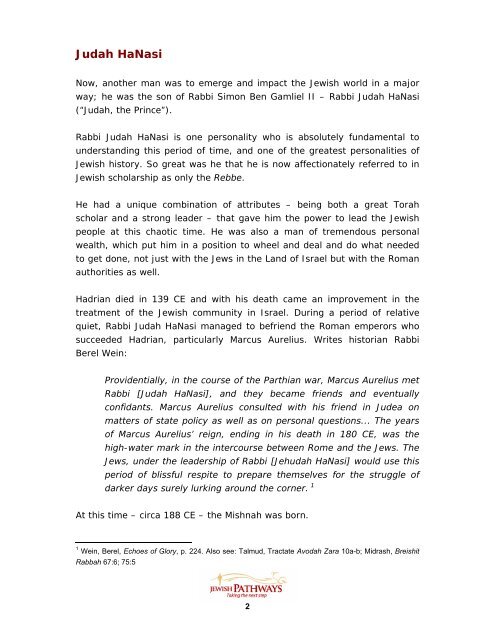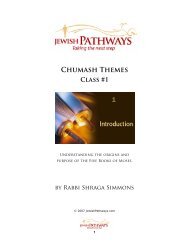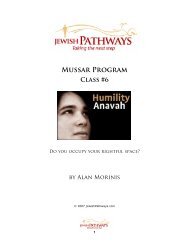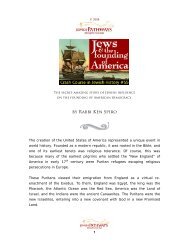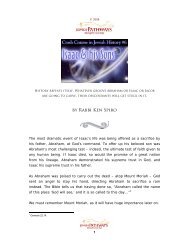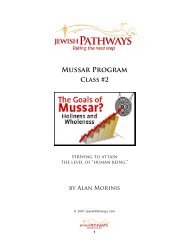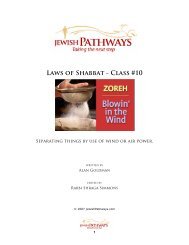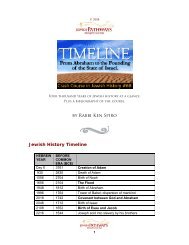The Talmud - Pathways
The Talmud - Pathways
The Talmud - Pathways
Create successful ePaper yourself
Turn your PDF publications into a flip-book with our unique Google optimized e-Paper software.
Judah HaNasi<br />
Now, another man was to emerge and impact the Jewish world in a major<br />
way; he was the son of Rabbi Simon Ben Gamliel II – Rabbi Judah HaNasi<br />
(“Judah, the Prince”).<br />
Rabbi Judah HaNasi is one personality who is absolutely fundamental to<br />
understanding this period of time, and one of the greatest personalities of<br />
Jewish history. So great was he that he is now affectionately referred to in<br />
Jewish scholarship as only the Rebbe.<br />
He had a unique combination of attributes – being both a great Torah<br />
scholar and a strong leader – that gave him the power to lead the Jewish<br />
people at this chaotic time. He was also a man of tremendous personal<br />
wealth, which put him in a position to wheel and deal and do what needed<br />
to get done, not just with the Jews in the Land of Israel but with the Roman<br />
authorities as well.<br />
Hadrian died in 139 CE and with his death came an improvement in the<br />
treatment of the Jewish community in Israel. During a period of relative<br />
quiet, Rabbi Judah HaNasi managed to befriend the Roman emperors who<br />
succeeded Hadrian, particularly Marcus Aurelius. Writes historian Rabbi<br />
Berel Wein:<br />
Providentially, in the course of the Parthian war, Marcus Aurelius met<br />
Rabbi [Judah HaNasi], and they became friends and eventually<br />
confidants. Marcus Aurelius consulted with his friend in Judea on<br />
matters of state policy as well as on personal questions... <strong>The</strong> years<br />
of Marcus Aurelius’ reign, ending in his death in 180 CE, was the<br />
high-water mark in the intercourse between Rome and the Jews. <strong>The</strong><br />
Jews, under the leadership of Rabbi [Jehudah HaNasi] would use this<br />
period of blissful respite to prepare themselves for the struggle of<br />
darker days surely lurking around the corner. 1<br />
At this time – circa 188 CE – the Mishnah was born.<br />
1 Wein, Berel, Echoes of Glory, p. 224. Also see: <strong>Talmud</strong>, Tractate Avodah Zara 10a-b; Midrash, Breishit<br />
Rabbah 67:6; 75:5<br />
2


